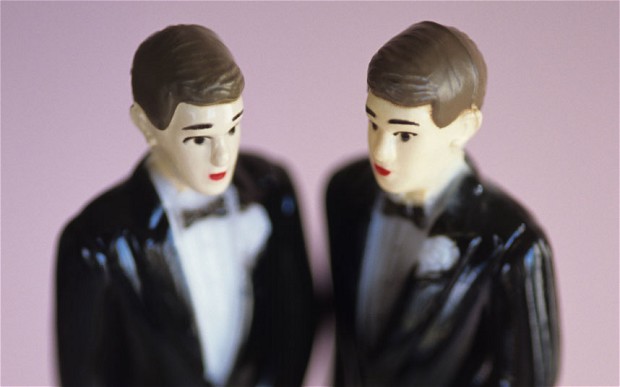A gay couple from Kerala have filed a writ petition in the High Court for recognition of same-sex marriages under the Special Marriage Act 1954, and has also stated that the Act is discriminatory towards homosexuals and violates Article 14, 15(1), 19(1) (a) and 21 of the Constitution of India. The Special Marriage Act 1954 allows for inter-faith couples to get married and have their marriage legally recognised.
“The impugned provisions of the Act of 1954 are regressive and outdated as they remain closed and opaque to sexual minorities and recognize marital unions as a composite of only heterosexuals,” the petition says.
Nikesh and Sonu have stated in their petition that they met each other in May 2018 and fell in love, after which they decided to get married. However, they were discouraged by everyone and had to solemnise the marriage in a secret ceremony, fearing backlash from the society and religious groups. When they went to register their marriage under Special Marriage Act, they found out its discriminatory nature.
“To petitioners’ utter shock, the Special Marriage Act, 1954 and its provisions are found to be discriminatory as well because the Act recognises only marriages between persons belonging to opposite sex alone. Though the text of the Act does not exclude homosexual unions from its ambit expressly, Section 4 and Schedules 2-4 to the Act carry a heterosexual undertone in its language as it shows marriage as an affair between a male and a female or between bride and bridegroom,” the petition states.
The petition points out the benefits the couple will miss due to non-recognition of their relation. “Being married carries along with it the right to maintenance, right of inheritance, a right to own joint bank accounts, lockers; nominate each other as nominee in insurance, pension, gratuity papers etc. All these are unavailable to the Petitioners due to their exclusion from the institution of marriage, making the said exclusion more discriminatory.”
Apart from pointing out the various Articles of the Constitution that gets violated by the Special Marriage Act, the petition relies on the NALSA judgement, the Navtej Singh Johar Judgement and the Puttaswamy Judgement related to privacy.
“The Hon’ble Supreme Court has, in Navtej Singh Johar vs. Union of India (2018) 10 SCC 1: 2018 (4) KLT 1 (SC), recognized and declared that the person has a right to sexual identity and be treated with dignity for that identification… Any law that fails in its duty to protect one’s self determination of sexual identity and treat that identity with dignity disrespects individual choice and thus is considered irrational and manifestly arbitrary, violating Article 14 of the Constitution of India,” the petitioners argue.
It is pointed that: “The non-recognition of marriage among homosexuals violates the rights guaranteed under Article 15(1) of the Constitution of India,” and, “equality would remain a distant dream for homosexuals if the law doesn’t allow all the civil liberties enjoyed by heterosexuals for the homosexuals as well. Anything less would be grossly discriminatory and violative of both Article 14 and 15(1) of the Constitution of India right to equality and equal protection of law guaranteed to members of LGBTIQ.”
It is further argued that : “Denial of the institution of marriage to the Petitioners and the refusal of law to recognize and accept homosexual marital unions is also a violation of their right to freedom of expression guaranteed to them by the Constitution of India under Article 19(1)(a) and are thus illegal and constitutional,” and, “Article 19 (1)(c) of the Constitution also protects marital unions among citizens within its ambit.” Article 19 (1)(c) of the Constitution protects any citizen’s right to form an association or union as far as the manifestation of that right does not vitiate the reasonable restrictions imposed under Article 19(4) of the Constitution.
The petition demands that Section 4, along with the Second, Third and Fourth Schedule to the Special Marriage Act, 1954, be declared unconstitutional as it excludes homosexuals, and, to “declare that the homosexual couples are entitled to solemnize and register their marriage under the Special Marriage Act, 1954”, and direct the authorities to recognise the marriage of the couple and issue them a certificate of marriage.
Both the Union of India, through Ministry of Law, and the Kerala Govt have been made respondents in the case.
- Post Amritsar Pride, Punjab’s LGBTQ Community faces Online Trolling, Hate and Threats - July 12, 2023
- Same-Sex Marriage against Indian “Sanskars”, Says UP Govt; High Court Rejects Plea by Lesbian Couple - April 15, 2022
- Karnataka introduces Reservations for Transgender People, 1% Jobs to be Reserved under all Categories - July 21, 2021

